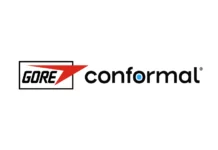The HIMSS Electronic Health Record Association in the US has gone to respond to a new request pertaining to the information from the US Department of Health and Human Services by seeing it as a very crucial opportunity in order to examine regulations that don’t reflect the present technology or market realities and also go ahead and make corrections to the misaligned approaches when it comes to rulemaking.
It is well to be noted that EHRA submitted the comments pertaining to its reform as well as regulatory priorities to the HHS. This was in response to its request for information (RFI) ensuring lawful regulation and unleashing innovation to make America healthy again request for information. Apparently, the EHR has asked the HHS to modernizing the regulatory approach to RFI.
In its comprehensive response, EHRA went ahead and stressed the critical requirement for regulatory modernization in order to keep pace with the rapid technological advancements within digital health. The association specifically called for updates to the present regulatory approach that surrounds the RFIs and other policymaking processes, arguing that the outdated frameworks go on to create unnecessary barriers to innovation within electronic health records and related health IT solutions. The recommendation of EHRA happens to focus on creating a more flexible, responsible regulatory environment that can go ahead and adapt to the emerging technologies such as AI, interoperable systems, and also patient-centered care models and, at the same time, make sure that compliance with the present laws takes place.
Through submitting these recommendations, EHRA looks forward to supporting HHS in developing regulations that both protect the patients and also empower the healthcare organizations to leverage cutting-edge technologies in an effective way. The association emphasized that the modernized regulations are going to be very critical for achieving nationwide interoperability, thereby ultimately enhancing the health outcomes throughout the care continuum.
Why all this makes a difference?
The coalition of health technology vendors has long held the fact that an expansion of Food and Drug Administration oversight of medical device regulation to technology that is subject to oversight already by way of the Office of the National Coordinator for Health Information Technology Certification Program happens to go beyond the statutory boundaries of the 21st Century Cures Act.
The EHR Association, in a comment letter on July 14, 2025, said that as the federal government looks forward to modernizing its regulatory approach and also supporting innovation throughout healthcare, it hence urges HHS to focus on clarity, alignment with statutory intent, and at the same time, elimination of low-value or duplicative regulatory needs.
It is worth noting that the organization’s position is that EHR systems should not get regulated as medical devices, and there is in place a guidance issued in 2022, which is having a chilling effect on developers willingness to invest in tools that are required to support public health along with value-based care programs. The organization said that the EHR association goes on to urge the EHS to revoke the final guidance on clinical decision support software from the FDA, which nearly conflicts with the seven principles that are already outlined in the executive order 14219.
Notably, the guidance lacks the statutory grounding and introduces legal ambiguity and at the same time also imposes excessive costs along with deterring innovation. Rather, the EHR Association went on to say that the FDA should reinstate or even revise the 2019 draft guidance to explicitly go ahead and exclude CDS functionality, which is embedded within the certified EHRs, and also eradicate new regulatory constructs, which include time-critical decision-making along with automation bias that was introduced in the latest guidance.
According to the trade organization, other HHS regulations along with policies also happen to fall within the deregulatory scope that has been outlined in the executive order 14212 by the Trump administration.
These happen to include clarifying predetermined change control plan requirements, which address the bias when it comes to classifying products as devices that happen to impose user fees. Altering outdated HIT certification testing tools and, at the same time, better defining certain aspects of interoperability requirements.
It is well to be noted that the organization also went on to urge HHS to go ahead and clarify electronic case reporting requirements, which include automated reporting of public health conditions along with chronic disease indicators, and also offer adequate funding as well as technical support for the Centers for Disease Control and state, tribal, and local as well as territorial authorities.
The EHR Association said that rather than deregulation in this case, success happens to depend on stability, coordination, as well as capacity building.
What’s the larger trend?
In January 2025, the FDA said that while it happens to be committed to rolling out new medical devices at a much faster pace, it is going to take a science-based approach when it comes to requirements for medical devices that are powered by artificial intelligence as well as machine learning.
Thereafter, in April 2025, the assistant secretary for technology policy went on to update the guidance that healthcare organizations use to assess and optimize the safety of their EHRs. The 2025 safety assurance factors when it comes to EHR resilience guides happen to contain CURES Act revisions, which also include the use of AI for clinical care, integration of FDA-approved medical device data into EHRs, and cybersecurity.
The EHRA said in its letter that as the federal government looks forward to modernizing the regulatory approach to RFI and supporting innovation through healthcare, they urge the HHS to focus on clarity, alignment with statutory intent, and also eradication of low-value or duplicative regulatory needs. The letter further added that the recommendations with regard to this response happen to reflect the practical realities that their member companies face when it comes to delivering high-quality, patient-centered, and interoperable digital health tools.


















